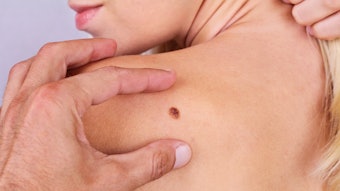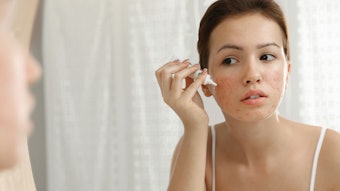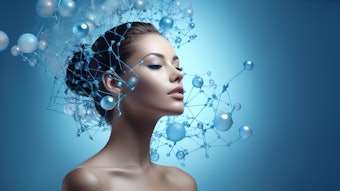
A January 2024 study on the JAMA Dermatology Network looked at the experiences of acne stigma and treatments in transgender and gender-diverse patients. The study found that acne can interfere with desired gender expression and contribute to negative stigmas and stereotypes towards gender-diverse individuals. Participants also noted a lack of transgender-specific acne care education and a general mistrust toward the health care system.
Related: Transgender Aesthetics Ambassador: Bianca Viscomi, M.D.
The study, "Lived Experience of Acne and Acne Treatment in Transgender Patients," was authored by Sarah Gold, BA; Meron Siira, MPH; Sigal Willner, M.D., MPH; et. al. It aimed to examine the lived experiences of acne and acne treatment in transgender and gender-diverse participants.
The mixed-methods analysis was conducted at a multidisciplinary gender center at a public safety-net hospital and endocrinology and dermatology clinics at a tertiary academic center from January 4, 2021, to April 7, 2022, using semistructured interviews and surveys. Participants were transgender or gender-diverse adults who had received gender-affirming hormone therapy. Data analysis was performed from November 11, 2021, to March 31, 2023.
A total of 32 participants were included in the study, 17 transgender men, 11 transgender women and four nonbinary participants. Ten participants self-rated their skin as currently clear or almost clear, 11 reported mild acne and 11 had moderate to severe acne.
Interviews exploring the experience of acne and acne treatment were audio recorded, transcribed verbatim, coded using minority stress theory and the socioecological model and analyzed using thematic analysis. Themes were triangulated with survey data on gender, self-reported acne severity, skin-specific quality-of-life impact and treatment experience.
Transgender women in the study reported acne interfering with feminine gender expression. Transgender men often normalized acne development, sometimes viewing acne positively as an early sign of testosterone action. Most participants tried over-the-counter acne treatments and commonly sought acne treatment advice from physicians, peers, online forums and social media.
Barriers to acne treatments identified in the study include cost, lack of multidisciplinary care, mistrust toward the health care system and lack of transgender-specific acne care education.
The study concluded that multilevel changes, such as developing strategies to reduce acne stigma, providing transgender-specific acne care education, facilitating multidisciplinary acne care and expanding transgender-friendly clinical environments, are recommended to reduce the impact of acne in transgender individuals.











